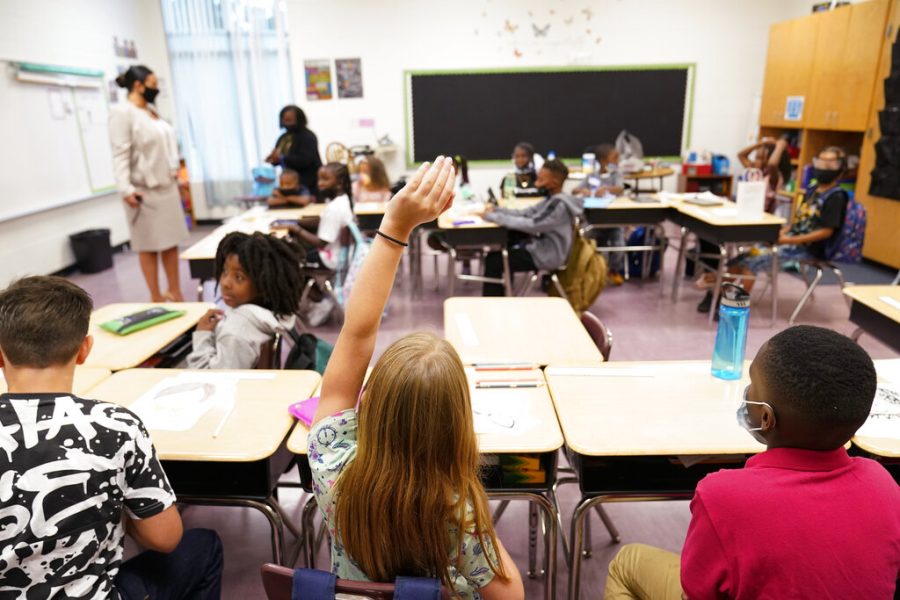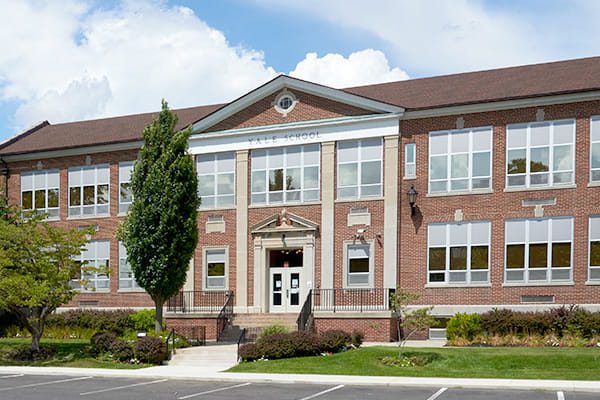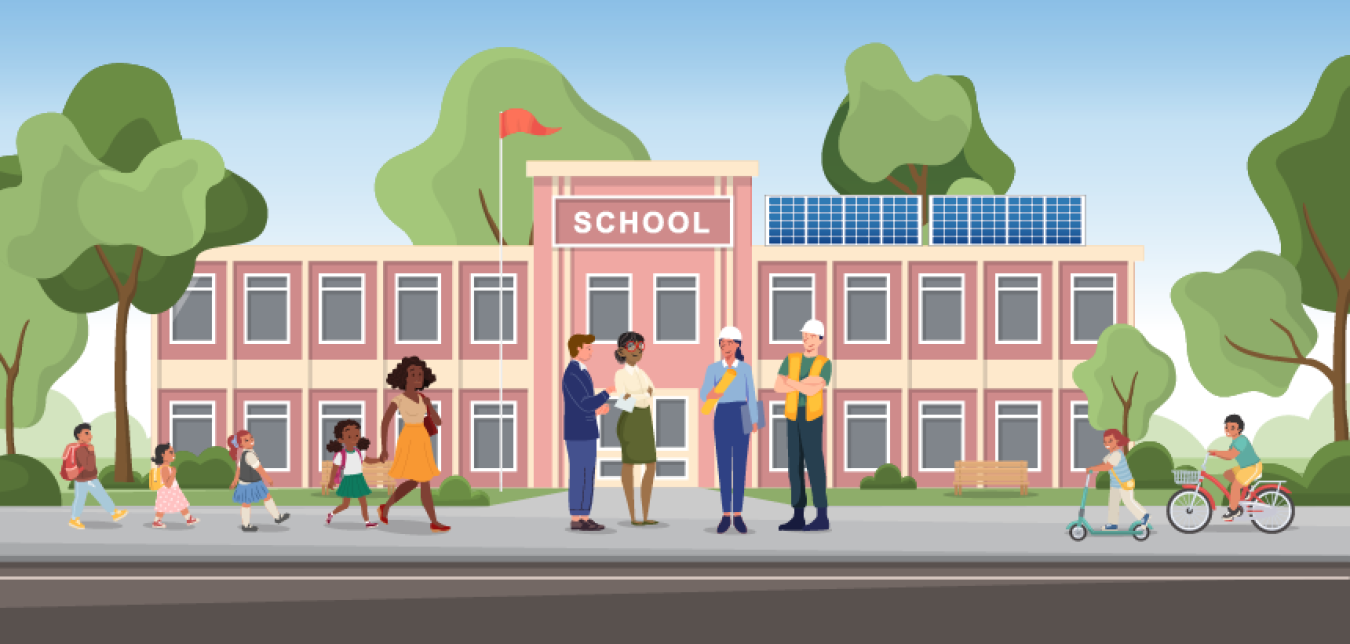Sign up with the Movement to Save Temecula Schools: Community Action Needed!
Sign up with the Movement to Save Temecula Schools: Community Action Needed!
Blog Article
Understanding the Significance of Colleges in Kid Development and Area Growth
Schools function as crucial organizations for kid growth and neighborhood growth, offering environments where scholastic accomplishments are enhanced by the cultivation of social abilities and exposure to varied perspectives. These instructional setups not only advertise important thinking and reliable communication yet likewise foster compassion via joint jobs. Additionally, schools' involvement with local neighborhoods through service-learning efforts reinforces the bond between families and schools. This symbiotic relationship underscores the relevance of institutions in supporting active citizenship and lifelong understanding routines. Nonetheless, what are the details mechanisms whereby these institutions attain such profound impacts?
Academic Accomplishment
Academic success works as a keystone of child development, giving the structure upon which future knowing and success are developed. Schools play a critical function in promoting this scholastic development, supplying organized environments where children can get crucial knowledge and cognitive skills. Standard educational program make sure that pupils gain proficiency in core subjects such as mathematics, scientific research, and language arts, which are vital for both higher education and professional chances.
Along with giving basic academic skills, institutions also grow essential thinking, analytical capacities, and intellectual curiosity. These cognitive expertises are crucial for browsing complicated real-world scenarios and adjusting to the ever-evolving needs of the modern-day workplace. Educators, as facilitators of knowing, utilize varied instructional strategies to accommodate different understanding designs, therefore making the most of individual trainee potential.
Additionally, academic success is closely connected to self-worth and inspiration. Kids that experience scholastic success are more probable to develop a favorable self-concept and a lifelong passion for understanding. Institutions additionally provide different sources, such as collections and innovation, which even more boost the academic experience and prepare students for a highly innovative society.
Social Skill Advancement
Beyond scholastic achievement, the function of colleges in social ability growth is indispensable. Schools function as a key venue for youngsters to learn and exercise important social abilities such as cooperation, conflict, and communication resolution. In the structured setting of a classroom, students engage with peers, teachers, and other institution personnel, using numerous possibilities to establish these essential abilities.
Efficient social ability development in institutions is promoted through group tasks, collaborative projects, and extracurricular programs. These communications help students comprehend social norms, develop empathy, and foster a feeling of neighborhood. Team jobs show students how to work with each other towards an usual objective, pay attention to different point of views, and browse disputes constructively.

The growing of social skills throughout institution years lays a foundation for future individual and specialist relationships. Save Temecula Schools. As trainees develop, the capacity to efficiently team up and interact becomes increasingly crucial, highlighting the school's essential duty in alternative child growth
Exposure to Variety
Direct exposure to variety in schools is fundamental to promoting an inclusive mindset and widening trainees' point of views. Schools function as a microcosm of the broader society, and running into varied societies, languages, and socioeconomic histories within this environment equips students with important abilities for browsing a significantly globalized globe. This exposure motivates compassion, minimizes bias, and advertises mutual respect among peers.
Diverse class likewise enhance cognitive and social growth. Research suggests that trainees that engage with peers from varied histories exhibit better analytic abilities and imagination. They find out to value various point of views, which enhances classroom discussions and promotes a much more vibrant learning experience. Additionally, this understanding of variety prepares pupils for future offices that value modern competence.

Area Engagement
The benefits of varied class expand past the college wall surfaces, fostering a solid feeling of area interaction among students. By communicating with peers from different cultural, socioeconomic, and ethnic histories, trainees gain a more comprehensive point of view and an admiration for diversity. This exposure encourages them to end up being energetic residents who agree to contribute positively to their neighborhoods.
Institutions that highlight area interaction usually integrate service-learning projects, which allow pupils to deal with real-world troubles while using scholastic abilities. These jobs not just boost trainees' understanding of their coursework but also infuse a sense of obligation and empathy. Furthermore, collaborations between institutions and neighborhood companies offer trainees with possibilities to take part in community occasions, further strengthening their role as positive neighborhood participants.
Furthermore, parental and area involvement in institutions reinforces the bond between educational establishments and the areas they serve. When institutions open their doors to community events, workshops, and volunteer possibilities, they produce a collaborative setting that profits all stakeholders. This common support group makes sure that pupils receive all natural advancement, preparing them to come to be all-around people that value and contribute to their neighborhoods. With these initiatives, institutions play a critical function in supporting community interaction and cultivating social growth.
Lifelong Learning Practices
Establishing long-lasting click over here learning behaviors is vital for a Get More Information youngster's constant growth and adaptability in an ever-changing world. Institutions play a crucial role in instilling these practices by creating a setting that cultivates curiosity, critical reasoning, and a love for expertise. Through diverse curricula and after-school activities, educators urge students to explore various topics, evaluate information critically, and apply their finding out to real-world circumstances.

Moreover, colleges supply a structured atmosphere where youngsters can develop self-control and time management skills, both of which are vital for constant discovering. By stressing the relevance of setting goals, reviewing development, and adjusting strategies, universities prepare pupils to navigate the intricacies of adult life, ensuring they stay lifelong learners and factors to culture.
Final Thought
In conclusion, institutions are vital in fostering child development and community growth by offering settings favorable to scholastic accomplishment, social skill advancement, and exposure to variety. Inevitably, schools cultivate long-lasting understanding routines, gearing up people with the necessary knowledge and abilities to contribute favorably to culture.
In the structured setting of a class, students engage with peers, teachers, and various other school team, view offering many opportunities to establish these important capacities.
In essence, direct exposure to variety within institutions not only enriches private students however additionally enhances the social fabric of the area as a whole.
The benefits of varied class expand beyond the institution walls, fostering a strong sense of area engagement among students.Colleges that highlight area interaction usually include service-learning tasks, which enable trainees to attend to real-world issues while applying scholastic skills. Collaborations between institutions and neighborhood companies provide trainees with possibilities to take part in neighborhood occasions, additionally strengthening their duty as aggressive community participants.
Report this page